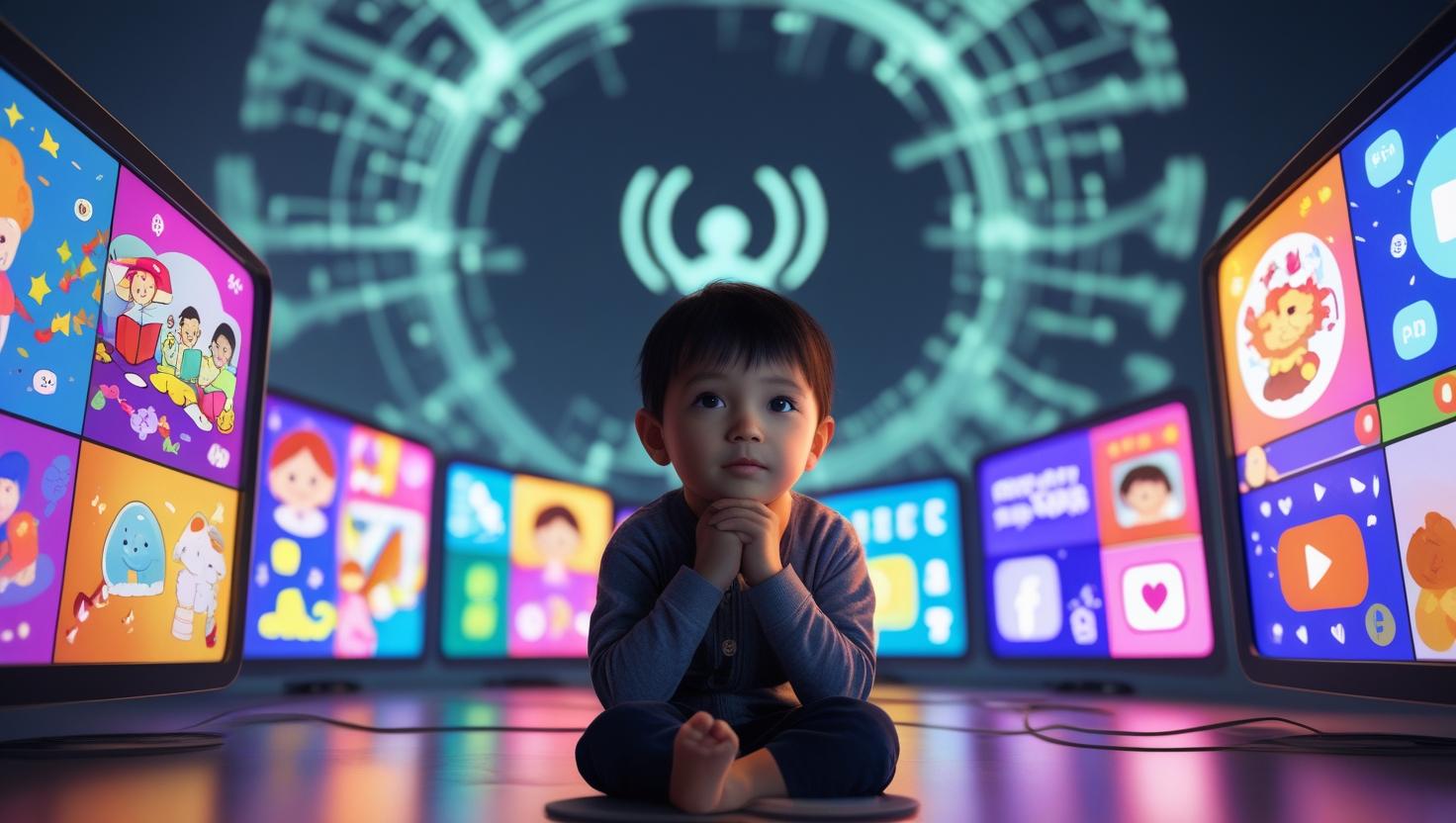
July 28, 2025
Children of the Algorithm: How AI Shapes Gen Alpha
We’re witnessing the first generation to grow up with AI — not just around them, but shaping them. From recommendation engines that serve their first cartoons to smart assistants answering their every question, Gen Alpha’s developmental landscape is increasingly machine-mediated.
But what does it mean when algorithms are part of your childhood from the start?
Born Into Curation
Today’s children are:
- Watching AI-curated video playlists before they can walk
- Using smart devices as digital companions
- Getting homework help from chatbots
- Interacting with voice assistants for storytelling, games, and advice
Their digital diet is largely decided by recommendation engines, predictive filters, and engagement-maximizing models.
The Algorithmic Parent: Convenience Meets Control
AI promises personalization — age-appropriate content, adaptive learning, safe browsing. But personalization comes with hidden costs:
- Behavioral steering: Algorithms learn what keeps a child watching and feed more of the same — limiting novelty and exploration.
- Emotional manipulation: Mood-based recommendations can reinforce echo chambers of comfort, fear, or stimulation.
- Data dependency: Every touch, swipe, or pause feeds the algorithm, creating a feedback loop of surveillance-led shaping.
Education in the Age of Automation
AI tools now assist — or even lead — learning:
- Adaptive learning platforms tailor lessons to pace and performance
- AI tutors provide instant feedback
- Essay helpers draft, edit, and correct writing
While this enhances scalability and access, it may undermine:
- Cognitive struggle: Over-simplified assistance can stunt critical thinking
- Creative risk-taking: Auto-completion and predictive tools discourage imaginative leaps
- Attention spans: Constant interactivity trains kids to expect instant results
The Rise of the Synthetic Friend
For many Gen Alpha kids, AI isn’t just a tool — it’s a friend:
- Virtual pets and companions simulate relationships
- Social bots respond with empathy scripts
- Emotionally responsive avatars “understand” and converse
But are these relationships safe?
Risks:
- Attachment to simulations: Children may develop emotional bonds with non-conscious agents
- Confused boundaries: Struggle to distinguish between real and programmed affection
- Emotional outsourcing: Turn to bots before parents, siblings, or peers for comfort or advice
Auto-Curated Identity: Who Am I When AI Decides?
Digital platforms now play a central role in shaping identity:
- Algorithms suggest what hobbies to try, what to watch, what to wear
- Filters alter appearances in real-time
- Likes and views define social worth
This can lead to:
- Algorithmic conformity: Kids learn to perform for engagement metrics
- Reduced self-direction: Rely on suggestions over exploration
- Early anxiety: Fear of missing out, rejection, or irrelevance — amplified by metrics
Parental Blind Spots
Many guardians see AI as harmless entertainment or smart support. But the long-term implications include:
- Unseen bias baked into personalization
- Emotional dependency on digital agents
- Reduced tolerance for boredom or ambiguity
- Constant surveillance from devices marketed as educational
The Need for Algorithmic Literacy
Gen Alpha needs new tools to survive and thrive in this landscape:
- Critical tech education: Understand how algorithms work and influence behavior
- Consent culture: Know what data is collected and how to manage it
- Emotional grounding: Learn to differentiate between human and machine empathy
- Slow tech spaces: Encourage boredom, reflection, and unmediated play
Designing for Autonomy, Not Addiction
Tech companies must reframe child-facing AI systems around:
- Developmental science, not engagement metrics
- Transparent algorithms and moderation controls
- Purposeful friction (e.g., pause prompts, reflection windows)
- Human override by design — where caregivers can intervene
Final Thought: Childhood Is Not a Dataset
Gen Alpha deserves more than optimized attention capture and synthetic friendships. They deserve autonomy, curiosity, and emotional depth beyond what algorithms can model.
If AI is to support human development, it must be designed with boundaries, oversight, and care. Otherwise, we risk raising children of the algorithm — shaped more by code than by culture.